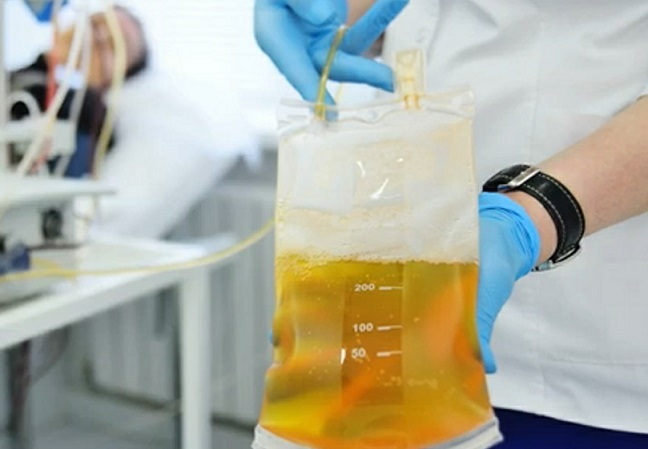Cutting Edge Clinical Trials to Help COVID Patients at Windsor Regional Hospital
16-11-2020

Windsor.Regional.Hospital is participating in a cutting-edge clinical trial to treat some COVID-19 patients, which is offering hope for a more viable treatment in the future.
Called the "Concor-1 Clinical Trial", as in Convalescent COVID-19 Respiratory illness, it uses the antibodies found in convalescent plasma collected from recovered COVID-19 patients and infuses it into current patients in hospital who are battling the illness in the early stages.
Concor-1 is based in Canada with more than 65 hospitals participating in the research, but it is a North American collaboration of multidisciplinary teams of physicians, scientists, research coordinators, medical laboratory technologists, blood donors, and patients.
To date, seven patients in Windsor have been enrolled in this clinical trial, which involves the infusion of the liquid part of the blood containing antibodies.
Antibodies help the body fight infection and with no known cure for COVID-19, clinical trials such as Concor-1, are vital in treating the disease in the future.
The goal is to decrease the mortality rate among COVID-19 patients, reduce the need for intubation or a ventilator as well as shortening the length of stay in the Intensive Care Unit and in the hospital.
The patients who are participating in the clinical trial must be on oxygen, but not intubated, they have to be in stable condition and agree to receive the plasma. The trial is conducted in a 2:1 ratio. In other words, for every two patients who receive the plasma, one patient does not, which allows researchers to compare whether the plasma helped or did not help the patient. This is an unproven therapy and it is critical we evaluate both its efficacy and safety.
"We have to do it by the book to make sure any benefit or difference we are seeing is not due to chance alone," says Dr. Ian Mazzetti and co-investigator.
As many as 1200 Canadian patients and 600 donors are required for the clinical trial in order to reach any conclusive findings.
Above and beyond the research, Principle Investigator at Windsor Regional Hospital Dr. Caroline Hamm says clinical trials change hospitals.
"Research saves lives, there is no question," she says. "Patients who are treated in the hospital who do research, everyone in the hospital not just the people in the research but everyone, lives longer. The research changes the culture of the hospital to a 'questioning hospital' of how can we do better and that has been proven time and time again."
When the pandemic began, Dr. Hamm says healthcare workers were nervous since there wasn't, and still is not, a cure for COVID-19, "It was heartrending to be in that situation to know there is this terrible thing happening to these people and we don't know what to do."
Comparing it to the enormous amount of research into cancer, Dr. Mazzetti notes on the onset of COVID, besides oxygen, treatment was scarce, but this clinical trial offers hope to manage COVID-19 in the future.